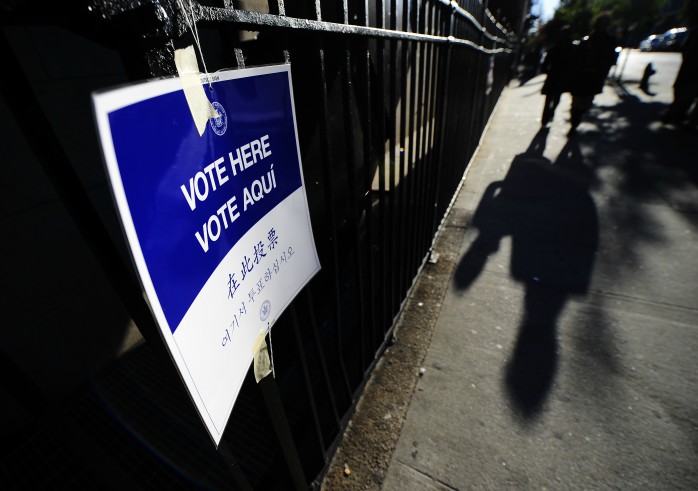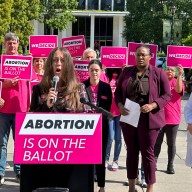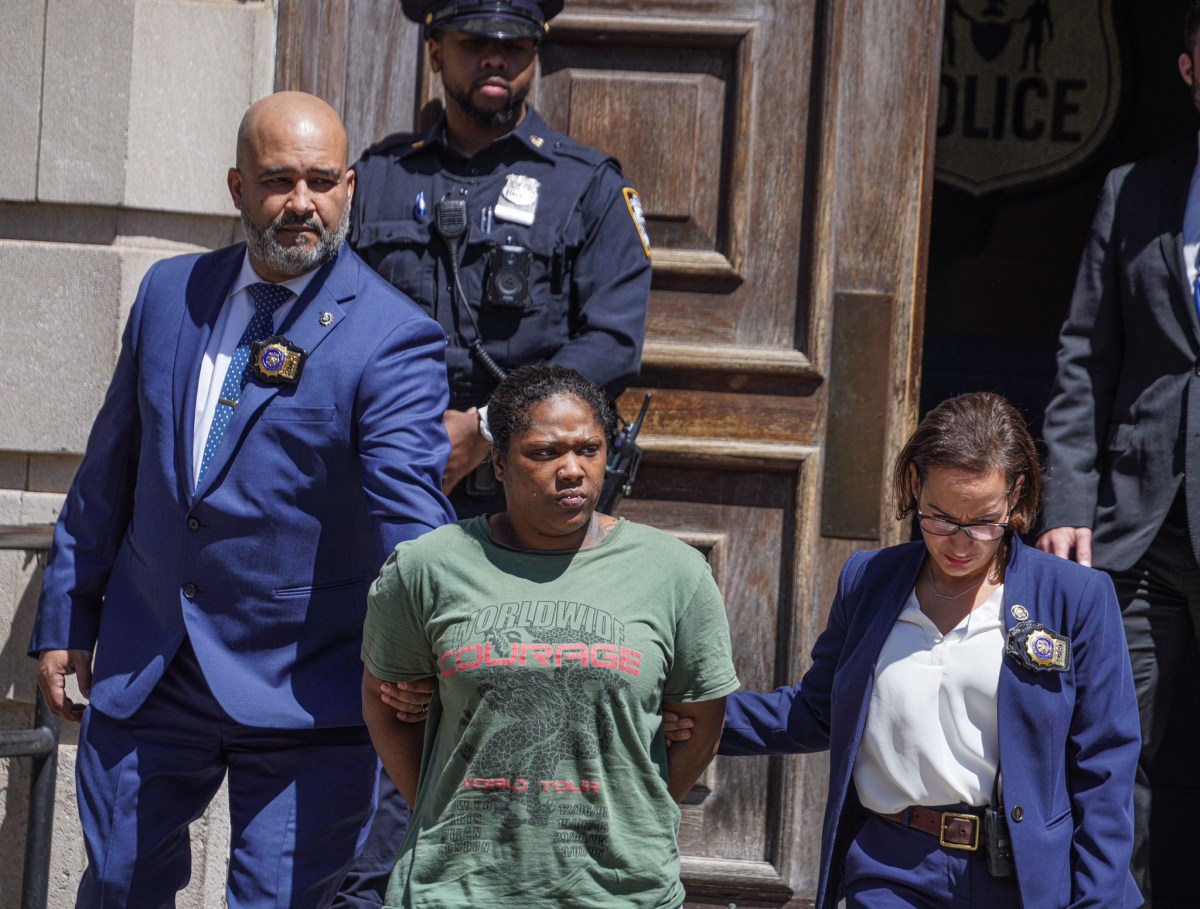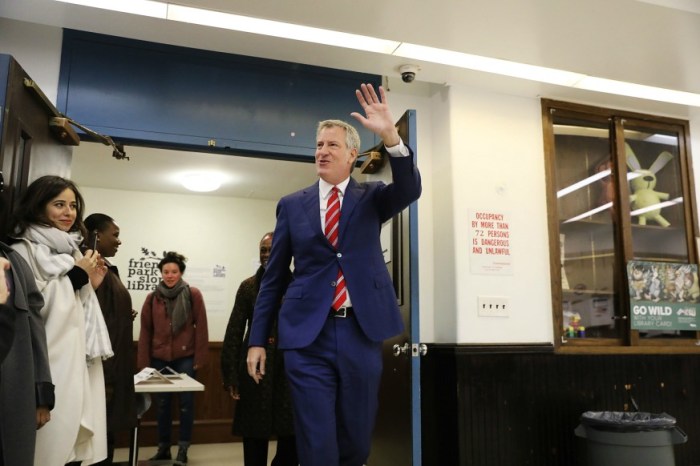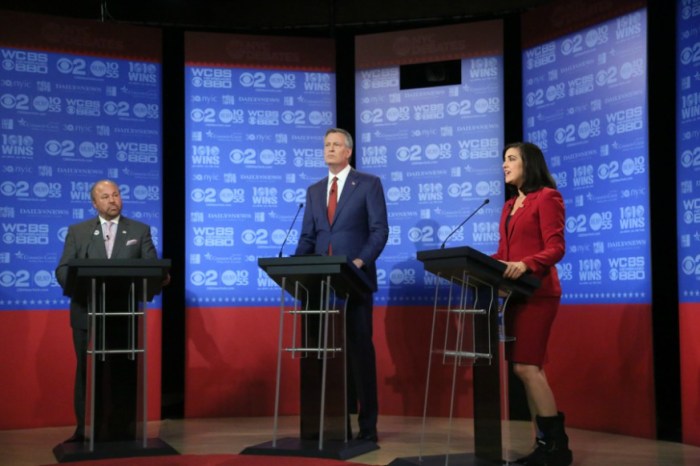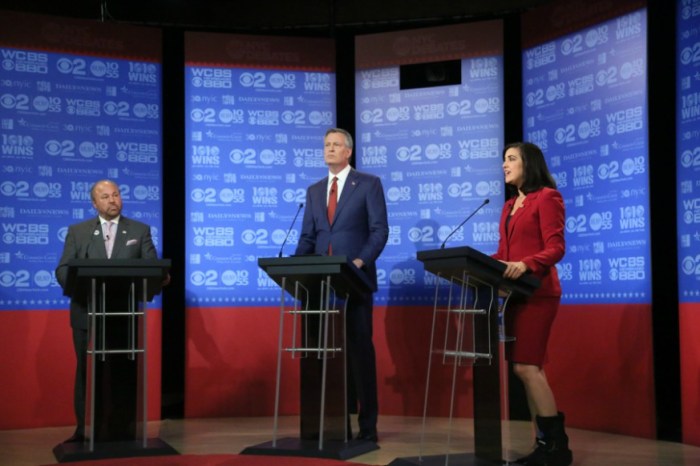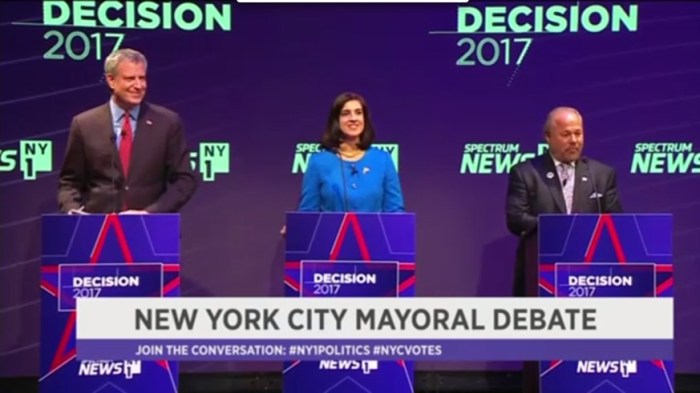Unhappy with the way New York City is being run? You’ll get your first of two chances to vote for change during the primary election on Tuesday.
In this election, voters choose their party’s nominees for the general election on Nov. 7.
This year’s big-ticket race is for the mayor’s office as several Democrats are looking to unseat incumbent Bill de Blasio, including his only debate foe, Sal Albanese, a lawyer and former member of the City Council. De Blasio has led both the polls and fundraising heading into the primary.
Additionally, the office of public advocate is also up for grabs, with David Eisenbach challenging incumbent Letitia James.
All 51 City Council seats are also up for election this year, and 10 of those seats do not have an incumbent.
Here’s what you need to know about Tuesday’s primary election.
When can I vote?
Polls open on Tuesday at 6 a.m. and close at 9 p.m. As you can only vote at your designated polling station, you can find your poll site by visiting vote.nyc.ny.us or looking on your voter registration card.
Who’s on the ballot for the 2017 NYC primary?
DEMOCRATIC MAYORAL CANDIDATES
Bill de Blasio (incumbent)
Over the past four years, the mayor expanded pre-K, ended stop-and-frisk and wants to fix the subway with a millionaires tax, which he told Metro is “something that can be acted on right away,” though he urges Albany, which controls the MTA, to “take full responsibility.”
Sal Albanese
Albanese represented Bay Ridge, Brooklyn, on the City Council from 1982 to 1997 and is currently a lawyer. He aims to reform the local political system, increase city funding for transit and “create individualized housing plans to serve the needs of each community, yet preserves its character,” he told the Campaign Finance Board.
Richard Bashner
The attorney and Brooklyn Community Board member is running to provide a more transparent city government, and he aims to rollback de Blasio’s “unbounded support of real estate development.” He also would close Rikers Island “quickly.”
Bob Gangi
The police reformer hopes to build “truly affordable housing built and managed by experienced neighborhood groups” and end “broken windows” policing.
Mike Tolkin
The tech entrepreneur plans to develop new policing tactics, including non-lethal containment efforts, create new modes of transportation and implement vocational training.
The Republican mayoral candidate, Assemblywoman Nicole Malliotakis, is running unopposed.
PUBLIC ADVOCATE
Letitia James (incumbent)
James has banned salary history questions in job interviews, obtained healthy lunches for more than 10,000 kids daily and expanded the city’s Worst Landlords List.
David Eisenbach
The history professor aims to end “pay-to-play corruption” and would call for a public hearing to support the Small Business and Jobs Survival Act to protect small businesses from predatory landlords.
BRONX BOROUGH PRESIDENT
Ruben Diaz Jr. (incumbent)
Under Diaz, the Bronx has welcomed roughly $13 billion in new development and seen more than 100,000 more residents entering the workforce.
Camella Pinkney-Price
The consultant and former Diaz aide, who dropped a discrimination lawsuit against him in 2015, plans to allocate more funding for the borough’s public school system for resources and qualified teachers.
Avery Selkridge
Little is known about Selkridge, who according to his Facebook page is a Touro College graduate. He told Norwood News that he cares “about the people and the people need someone who is listening and willing to try to help.”
(There is no borough president primary in Brooklyn, Manhattan, Staten Island or Queens.)

